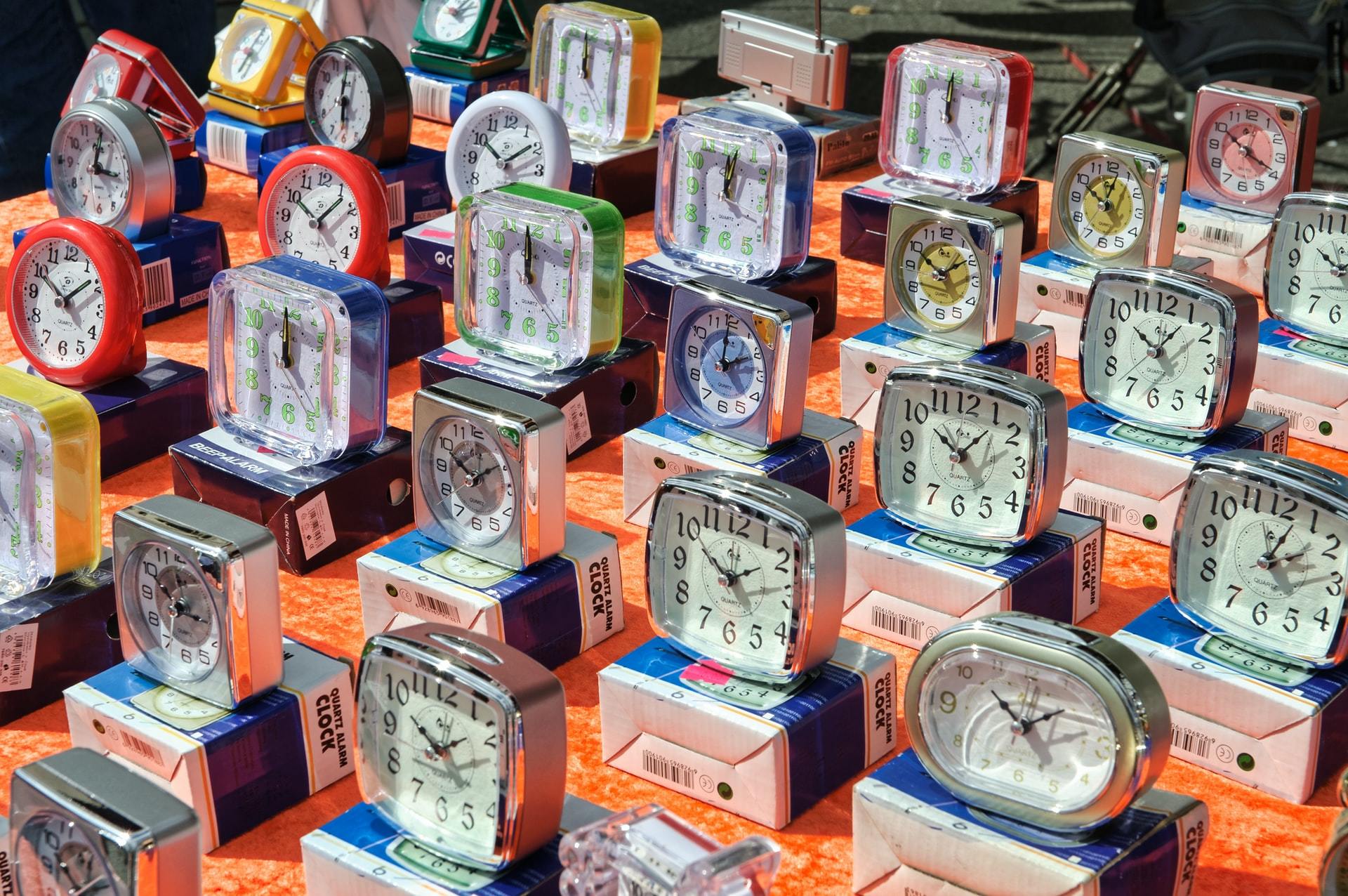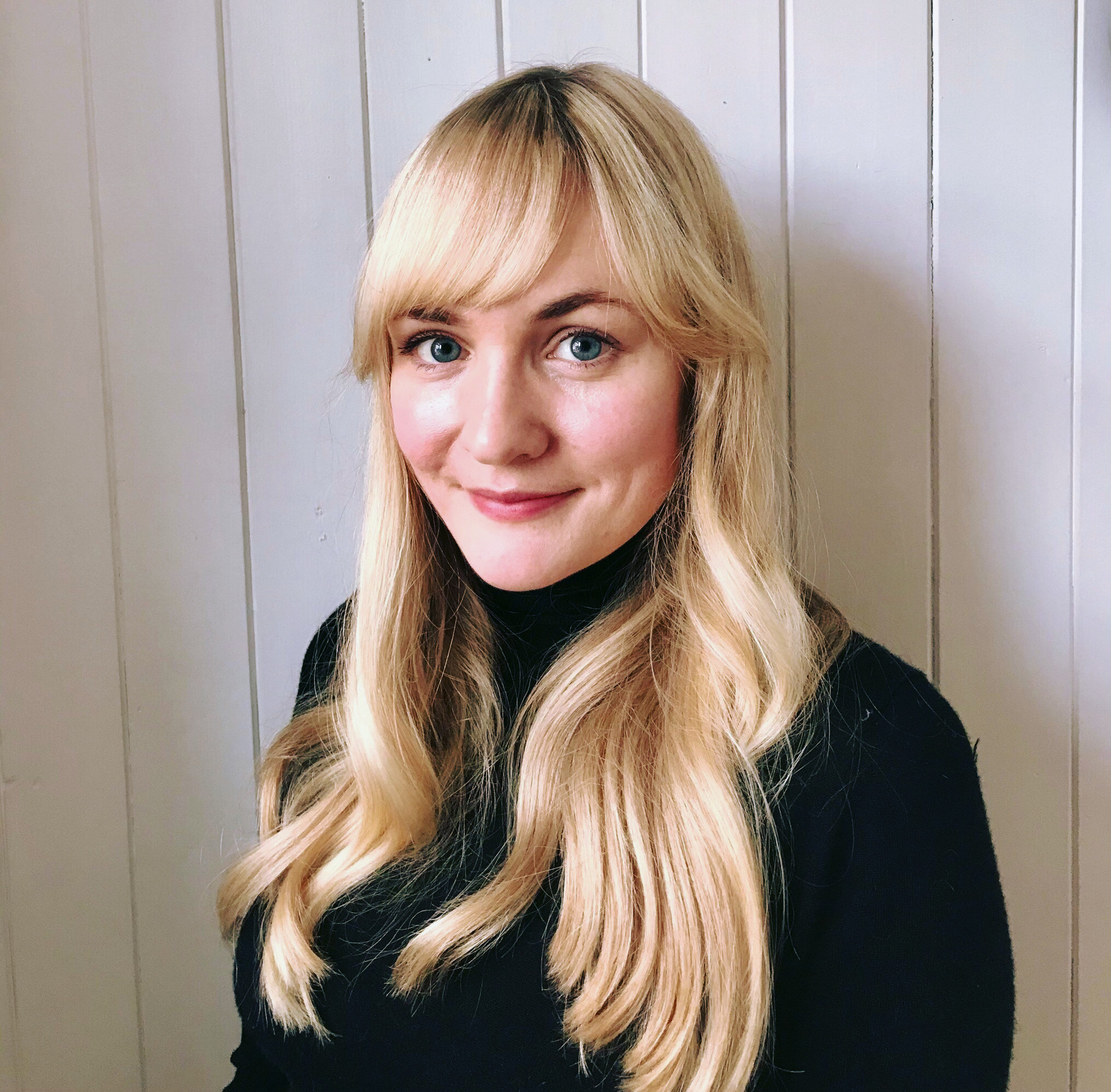
(Here at Mslexia Towers we’re trying out something similar. On Monday 1 November at 12-1pm we started the first of our weekly communal write-ins in the Salon on the Mslexia website. People turned up on Zoom and simply wrote for an hour, commenting silently on how they were getting on in the chat function. To take part next Monday, click here.)
It’s 8am. I’m still in my pyjamas, my teeth unbrushed, my hair sticking out at all angles. On my laptop screen in front of me the Zoom meeting I’ve joined begins. A familiar grid of tiny faces appears – there are muffled greetings, waves, smiles – before we’re all put on mute, ready for the hosts to begin the session.
This is The Writers’ Hour, an initiative dreamed up by Matthew Trinetti and Parul Bavishi, who run the London Writers’ Salon writing community. Every weekday, three times a day, writers from all walks of life grab a hot drink and gather on a Zoom call to write, connect and reflect. The writing sprints run at 8am GMT, 8am EST, 8am PST and 8am AEDT – though anyone can join any session, wherever they’re based. Each meeting begins with participants posting their intentions in the chat box, setting out what they’re hoping to achieve within the hour – 500 words of a novel, for example, or some edits on an article.
Next, the daily ‘words of wisdom’ – a motivational quote from a well-known writer, about the craft of writing or working towards goals – are shared (Margaret Atwood, Ryan Holiday and Mary Oliver have all featured). Everyone then raises their mug of tea or coffee in a toast, and then the writing time starts: 50 focused silent minutes of working together, yet apart. Afterwards there’s a brief discussion about how the session went for everyone – some exceed their targets, some find themselves distracted – before the call ends.
Matt and Parul came up with the idea for The Writers’ Hour on 22 March last year – the evening prior to the first day of the first UK lockdown. They’d recently had to cancel the in-person events of the London Writers’ Salon. ‘We were kind of frightened,’ remembers Parul. ‘We thought, what’s the one thing we can do? Why don’t we write together, along with anyone who wants to join us?’
The pair mocked up an image for the branding and brainstormed a few names for the session. At 10.30 that night, they announced on their mailing list and on Instagram that The Writers’ Hour would start the following morning. ‘At the time it was just a way of trying to have something steady in a world where everything was falling apart,’ says Parul. ‘We didn’t care how many people came in the beginning – we just thought, let’s experiment for ten days and see if anyone shows up.’
‘Nine people turned up on the first day,’ adds Matt. ‘And then it steadily climbed every day. By the Friday, it was close to 30.’ The London session now regularly includes over 200 participants. On the day we speak Matt and Parul expect to see at least 500 people across the three sessions, and their aim is eventually to have 1,000 people attend each.
Attendees can choose to financially support The Writers’ Hour on Patreon – three different tiers are available, offering extras such as access to specialist Slack groups, writing masterclasses and critique sessions. But the daily Zoom writing sprints are completely free of charge, which makes the space refreshingly egalitarian. Writers of all kinds can join, whether they write fiction in their spare time, are professional copywriters or simply use the space for some morning journaling. The sessions are frequented by people at all stages of their writing career, from those just starting out to published authors – which means you may well spot someone famous toasting you with their tea mug.
‘It always tickles me when we see someone on the call who’s an established author,’ says Matt. ‘You never know who’s going to be next to you in the room. It could be someone in Cambodia who’s just starting out, or a ten-times published bestseller in London – and you’re kind of sitting beside them, all focused on the work. It’s a little bit electric when that happens.’
Another highlight for the hosts is witnessing the off-screen friendships that form between attendees. ‘Sometimes long-lost friends who knew each other years ago will notice each other on the call,’ says Matt. ‘There were actually two women in the last few weeks who realised they both live in the same village in Mexico. So the next day they met up in a café together and joined The Writers’ Hour at the same table!’
Parul notes that the openness and vulnerability encouraged at the sessions creates a breeding ground for friendships to form. ‘I’ve been surprised at the intimacy we’ve all had with each other,’ she says. ‘There’ve been moments when both Matt and I have cried. Someone joined the day after she lost her father – she needed a place to be and just wrote down some memories. There have been people in all sorts of circumstances. And we’re always here – however you’re feeling, the space is neutral.’
There are moments of celebration, too, with some attendees achieving career highlights they’d previously never thought possible. ‘You can write and publish a book in nine months – that’s our best-case scenario,’ says Matt. ‘So we’ve seen people who started a book at The Writers’ Hour, then had that book published, then celebrated that achievement in the chat.’
Many of the people who take part in The Writers’ Hour feel it has made a positive difference to their lives and mindsets – no easy feat in the middle of a pandemic. ‘I’d been a carer for my daughter who had mental health issues, and I guess I’d lost myself,’ explains Giselle, a regular attendee. ‘I’d had short stories published a few years ago, and felt sure that writing was what I wanted my life to be about, but I’d lost confidence. I gave The Writers’ Hour a bash and got hooked.’
For Babs, who has progressive MS, The Writers’ Hour has been a lifeline while she’s been shielding due to Covid-19. ‘When I began shielding, I felt compelled to write again,’ she recalls. ‘Even though my mobility issues meant I was used to being stuck within my four walls, the big difference now is that thanks to Zoom, the world has come to me. Being part of The Writers’ Hour community has meant I haven’t felt isolated during all the months I’ve been shielding.’
Another writer, Victoria, also found that the sessions gave her a sense of purpose during the pandemic. ‘Before I joined The Writer’s Hour, my mental health was in bad shape,’ she says. ‘The daily sessions give me a reason to get out of bed at a sensible hour every day and get myself ready to write. I feel a weird sense of obligation to show up for everyone else.’
It does feel as though Matt and Parul have tapped into something unique with The Writers’ Hour. There’s something about writing in silence with others, with no judgement or expectation, that is comforting, but holds you accountable at the same time – a little like working in a library, surrounded by people who are all doing the same thing. Parul likens it to meditation. ‘If you’ve ever meditated in the room with a lot of people, it’s somehow more focused,’ she says. ‘When there were only 40 participants on a call, people weren’t sure about having 100, because it sounded too busy – but it actually seems to allow for more connections.’
Many writing groups centre around reading work aloud and offering feedback, but with The Writers’ Hour it’s just about settling down to the work together. It’s a reassuringly simple and welcoming concept: anyone can join and anyone can fit in. Psychologist and author Jacqueline Ward runs her own writing group in Oldham where she lives. She believes that our human need to be part of something bigger is the reason that writing groups are so effective. ‘It’s that basic human instinct of belonging,’ she explains. ‘I think it’s keyed into Maslow’s hierarchy of needs. Although belonging is below food and shelter, we all still have a pure need, a very visceral need to belong to something.’
The element of belonging has made The Writers’ Hour a daily highlight for so many people who have been otherwise isolated during the pandemic. But when, post-Covid, we’re eventually dragged away from Zoom and thrown back into our busy lives – with offices and commutes and socialising in real-life groups – how will the sessions adapt?
‘We’re open to suggestions,’ says Matt. ‘We don’t want to abandon the online sessions, because if we were just running sessions in central London, we’d lose about 90 per cent of the people that are joining in now.’ He and Parul are excited about the idea of local meetups, however, and are wondering how they could encourage people to get together in their own cities or towns.
‘Our approach has always been to listen and adapt,’ Matt continues. ‘So if people are going back to work and they still want to do this – we’ll keep doing it.’
This article first appeared in Mslexia, Issue 89.
Rebecca Hastings is a writer and sub editor, primarily covering lifestyle, mental health, work and money. Her journalism has been published in Refinery29, Stylist, Vogue, the i Newspaper, HuffPost UK and many more. She lives in east London. Follow her on Twitter and Instagram @rebz_hastings.


